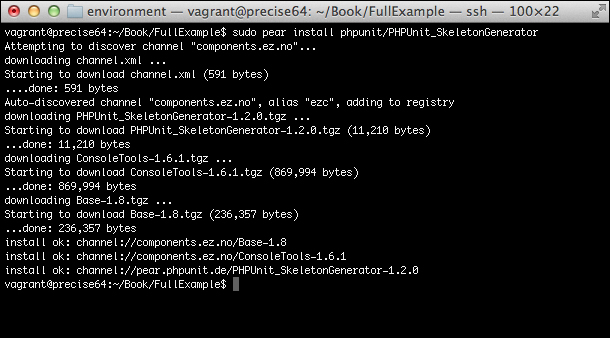The PHPUnit Skeleton Generator is a very powerful command. So far we have barely scratched the surface of how you can use it. When you combine it with PHPDoc annotations you can generate some of the actual test code as opposed to incomplete stubs. You can also use the PHPUnit Skeleton Generator to assist in test-driven development.
Using @assert to generate additional code
You can give the generator hints as to what test code should be created using the @assert annotation. These annotations should be added directly to the code that you will be testing. The format of the annotation is @assert (arg1, arg2, …, argn) operation result. The operation can be any logical comparison such as ==, !=, <, or > as well as the throws string. The logical comparisons are obvious in their use. The == operation is the equivalent to the PHPUnit assertEquals() method. The throws operator is equivalent to the @expectedException annotation.
You can see this in action by adding the following comment to the isInMatchingSet() method in src/Card.php:
When you run the phpunit-skelgen --test -- Card src/Card.php CardTest2 test/CardTest2.php command and look at the generated test/CardTest2.php file you will now see the following test method:
You'll notice that for each @assert annotation, a corresponding test method was created.
Using the Skeleton Generator for test-driven development
The Skeleton Generator can also be used when employing a test-driven development methodology. The examples so far have been focused on creating tests based on written code. This is contradictory to the test-driven development methodology. However, you can create code from tests just as easily as you can create tests from code. When you run phpunit-skelgen --class – CardTest test/CardTest.php from the project directory you will see that it creates a new Card class in src/Card.php. It even stubs the methods that it detects based on the test methods you wrote.



 Free Chapter
Free Chapter


